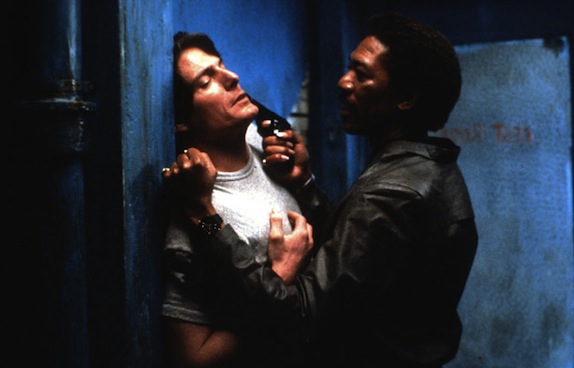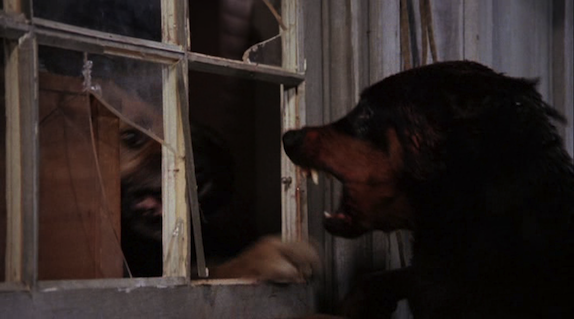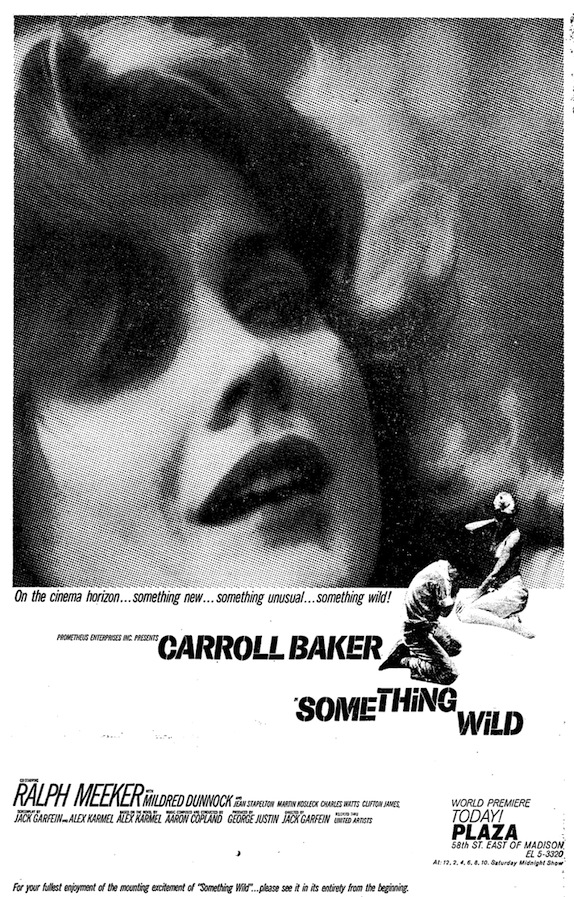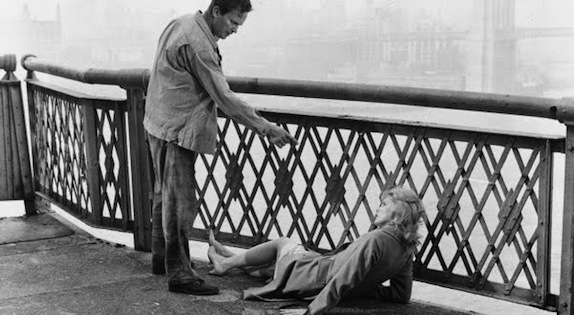Shelf Life #6

Shelf Life is an ongoing series of blogs that see Aaron working through his unwatched pile of back catalogue films, and in this edition he checks out a journalistic thriller starring Christopher Reeve and Morgan Freeman (in his first Oscar-nominated role); a pack of killer dogs running amok and decimating the human population of a small island; and an earlier film called Something Wild that’ll confuse and disturb anyone expecting to see the 1986 Melanie Griffith flick.
STREET SMART

Produced by the Golan-Globus team fondly remembered for their ‘80s Chuck Norris action pics, Street Smart (1987) was one of their few forays into “serious issues”-type fare and made at a time when their winning streak on the wane (two other G-G movies, Over the Top and Masters of the Universe, flopped big time in the same year).
It was also a huge pet project for Christopher Reeve, who only agreed to do Superman IV: The Quest for Peace if they would finance this film. But you wouldn’t think so watching Reeve’s bland, passionless performance as Jonathan Fisher, a struggling, desperate New York Journal reporter who decides to fabricate a sensational story to get back into his boss’s good graces. Reeves is upstaged by everyone in the cast, not least of all, Morgan Freeman (in his first Oscar-nominated role) who kills it as ‘Fast Black’, a murder-accused pimp who’s mistaken for the main character in Fisher’s fictionalised piece.
Street Smart is an interesting, entertaining film with a bit of an identity crisis: is it a seamy, revealing walk on New York’s mean streets or a legal drama about journalistic integrity? It’s the sort of material Sidney Lumet would make a good fist of, but director Jerry Schatzberg – who did much better in the early ‘70s with gritty character studies like Scarecrow and Panic in Needle Park – falls short of bringing it together, causing the film to occasionally come off like a movie version of Fisher’s out-of-touch article that imagines Times Square pimps as owners of condos in Maui.
Having said that, I do like the film a lot, mainly because Freeman’s so terrific; the sequence where he threatens a streetwalker with a broken bottle for shortchanging him (“Your face?? MY face, MY tits, MY ass!”) sizzles with an unpredictable energy the film could use more of. In the supporting cast, Kathy Baker stands out as a heart-of-gold hooker named Punchy. Slimy Perfection Award goes to Rick Aviles (Ghost), whose sleazing all over Mimi Rogers (who plays Fisher’s girlfriend) deserves a mention. Available on Region 1 DVD from MGM.
THE PACK

The ‘70s were the great golden age for killer animal/nature-run-amok films. Think of any animal – or insect – and there was most likely a B-movie making a few bucks off having it terrorise a bunch of dumb humans. Grizzly, Day of the Animals, The Swarm, Frogs, Piranha, Kingdom of the Spiders – and of course, Jaws – etc etc. Then there’s The Pack (1977), directed by Robert Clouse (Enter the Dragon), which stood above the rest because its animal-terror-of-choice – the Angry, Neglected Dog – LOOKED genuinely vicious and not like some cheap, half-assed, schlocky special effect. Even if the end credits disclaimer informing us that the animal action was “monitored by the American Human Association” provides a little relief, there’s probably no way this level of animal-handling ferocity – whether it’s dog-on-dog or dog-on-human – would be allowed in cinema today.
The film stars Joe Don Baker as a marine biologist (a bit of a stretch, but he’s solid as usual) who must corral the tourists and inhabitants of Seal Island to safety when a pack of pet mutts-gone-feral begin hunting them down. The plot, based on a novel by David Fisher, is fairly basic, and when you stop to think about the scenario’s logic (no ferry for days? really?), things fall apart on the plausibility scale. But there’s enough to admire in Clouse’s lean direction and grisly set-pieces to make The Pack an effective, memorably savage chunk of canine carnage. All the dog stuff is alarmingly realistic: they look malnourished and abused, get jabbed with umbrellas and sticks, and in one startling shot, almost appear like they were actually run over by a truck. Something like the recent The Grey, with its middling CGI and animatronic wolves, visibly pales in comparison. Available from Warner Archives.
SOMETHING WILD

I’m not sure what the programming on MGM and TCM is like now but back (like, a whiiiile back) when I was still a SKY subscriber I used to religiously trawl through the schedule and pick out movies to tape (remember setting your VCR to record stuff when you couldn’t be awake to do so? Ahhhh…). They would show some amazingly rare things that hadn’t come out on DVD yet (The Travelling Executioner! Little Cigars!), or have never ever had a home video release (one of the rarest from memory: the 1972 Robert Blake race car movie Corky). I amassed a bit of collection from all the rabid taping, and true to form, many of these tapes (usually recorded on long play so I could fit 3-4 movies) remain unwatched and gathering dust.
Here’s one I pulled out over the weekend: Something Wild (1961), a very-much-ahead-of-its-time curiosity that’s one of only two features ever directed by the Czech-born Jack Garfein, a concentration camp survivor who became a renowned teacher of Method Acting.

Garfein’s then-wife Carroll Baker plays Mary Ann, a rape victim whose attempt to jump off a bridge is interrupted by Mike (Kiss Me Deadly’s Ralph Meeker), an auto-mechanic who proceeds to bring her home to his dingy basement apartment and keep her there. The narrative then spirals into a strange Stockholm Syndrome-type deal that doesn’t try to address the psychological fallout of rape in any obvious, spelled-out sense – something which perplexed and probably frustrated viewers back then, and would probably today too if you require the comfort of easily plotted character motivations.

The fact of the matter is Something Wild was so far off the beaten track in its day (at least in the US) that no one knew what to make of it. Clearly more a product of a European sensibility, it’s a twisted, bravely ambiguous love story about two lonely, damaged souls, not some message-driven, PSA-type examination of rape and its consequences. Garfein evokes the film’s haunted worldview with an artsy, fairly experimental style, an approach evident in everything from Saul Bass’s striking opening titles to the busy, harried orchestral jazz score of modernist composer Aaron Copland to Metropolis cinematographer Eugen Schüfftan’s starkly vibrant, nightmarish location-heavy shooting. An amazing film – track it down.
















